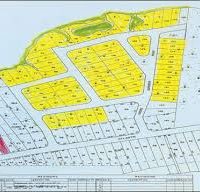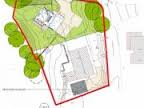Land Severances
Citizens’ Guide 5 – Land Severances PDF (270 KB)
What is a land severance?
A land severance is the authorized separation of a piece of land to form a new lot or a new parcel of land. This is commonly known as a consent. It is required, if you want to sell, mortgage, charge or enter into any agreement (at least 21 years) for a portion of your land. If the two parts are split already, by a road or railway for example, consent is not needed.
Most municipalities with an approved official plan have specific policies and requirements for land severance. In addition to the division of land, rights-of-way, easements and any change to your existing property boundaries also require land severance approval.
If several severances are intended in the same area, a plan of subdivision may be more appropriate. It is up to the consent-granting authority in your area to decide whether a consent is the best approach or if a plan of subdivision is necessary for the proper and orderly development of your community. (See Subdivisions, No. 4 in the series.)
Why do I need approval to sever my land?
The indiscriminate division of land without anyone’s approval could have a long-term, negative impact on your community. For example, it could result in over-extension of municipal services, such as snow plowing, school busing and garbage collection. Or it might result in damage to the natural environment, because lots are too small to accommodate adequate sewage disposal systems.
Official approval is required to ensure that:
- land severances are considered within an established community planning framework
- new lots and new land uses do not conflict with the overall future planning goals and policies of your community
- consideration is given to the effects of the division of land on the site, on the neighbours and on the community as a whole.
Once a severance has been approved, the new land parcels may be sold or resold without further approval. The only exception is if the consent-granting authority has specified that this should not occur without further approval.
Where do I go for a land severance?
The approval of severances can rest with one of a number of different governing bodies. Depending on the area, the granting of consents may be carried out by an upper-tier or single-tier municipal council. An upper-tier may then delegate the function to a committee of council or an appointed officer. Alternatively, it may delegate the authority to a lower-tier municipality, a land division committee or to a municipal planning authority. A single or lower-tier municipality may also use a by-law to delegate its approval functions to a committee of council, an appointed officer or to a committee of adjustment. In northern Ontario, where planning approval has not been assigned or delegated to a municipality or planning board, the Minister of Municipal Affairs and Housing grants consents (See Northern Ontario, No. 7 in the series.)
To determine the consent-granting authority in your area, contact either your municipal clerk, the secretary-treasurer of the planning board or the Ministry of Municipal Affairs and Housing.
What is the process for a severance application?
Before you apply for a land severance, you should consult with municipal staff and/or the consent-granting authority in your area. They will be able to tell you how to apply, what supporting material you must submit (e.g. sketches, plans), if there are any special land severance requirements set out in the official plan and what other permits and approvals (e.g. a septic system permit) may be required.
The consent-granting authority may not accept an application that fails to provide the information or material prescribed by Minister’s regulation and, in some cases, the information set down in the municipal official plan. If a consent-granting authority confirms that an application is incomplete, the applicant may make a motion to the Ontario Municipal Board for a determination of the matter.
The Board’s decision is final. However, in such situations, you are strongly encouraged to work out a mutually acceptable solution with the consent granting authority before making a motion to the Ontario Municipal Board.
When applying for a land severance, you may be charged a fee for processing the application. To determine the processing fee in your area, contact the appropriate consent-granting authority.
As an applicant, you are usually required to fill out a consent application form provided by the consent-granting authority.
A typical application form contains both the information which is prescribed by Minister’s regulation as well as additional information which the consent-granting authority may require. The more information provided, the less likely delays will occur in the review process.
If you do not provide all the information prescribed by Minister’s regulation and in some cases, information or material set down in the municipal official plan, the consent-granting authority may refuse to accept or to further consider your application. Also, the 90-day time frame for making a decision does not begin until all the required information is received. You are encouraged to contact the appropriate consent-granting authority if you need help in assessing what information is required.
The consent-granting authority must give notice of application before a decision is made. Notice of application is given at least 14 days in advance of a decision by the consent-granting authority, either through local newspapers or by mail and posted notice. Any person or public body may submit his or her views to the consent-granting authority.
The consent-granting authority may consult with agencies, boards, authorities or commissions before making a decision.
When the consent-granting authority has decided on your application, it is required to send a notice of decision to any person or public body requesting to be notified within 15 days of the decision being made. When a notice of decision is given, a 20-day appeal period follows.
How is the severance application evaluated?
In considering each application for land severance, the consent-granting authority evaluates the merits of each proposal against criteria such as:
- conformity with the official plan and compatibility with adjacent uses of land
- compliance with local zoning by-laws
- suitability of the land for the proposed purpose, including the size and shape of the lot(s) being created
- adequacy of vehicular access, water supply, sewage disposal
- the need to ensure protection from potential flooding.
In considering a consent application, the consent-granting authority’s decision shall be consistent with the Provincial Policy Statement.
The Provincial Policy Statement contains clear, overall policy directions on matters of provincial interest related to land use planning and development. The “shall be consistent with” rule means that a council is obliged to ensure that the policies of the Provincial Policy Statement are applied as an essential part of the land use planning decision-making process. It is expected that the consent-granting authority will implement the Provincial Policy Statement in the context of other planning objectives and local circumstances. (See The Planning Act, No. 1 in the series, and the Provincial Policy Statement, 2005. Both may be obtained through the government offices listed at the end of this guide or by visiting the Ministry website at: ontario.ca/mah).
What about conditions of severance approval?
A severance approval may have certain conditions attached to it including requirements for road widenings, parkland dedication, or a rezoning (or minor variance) to allow a new land use. In addition, the property owner may be required to enter into an agreement with the municipality to provide future services or facilities. Severance conditions must be met within one year.
When all the conditions have been met by the applicant, a certificate is issued by the authority, and the severance goes into effect after it has been registered in the land registry office.
If the transaction originally applied for – sale of property, for example – is not carried out within two years of the date of the certificate, the severance is considered lapsed. An earlier lapsing date can be specified by the consent-granting authority at the time of the severance decision.
How can you get involved?
If you are concerned about a severance application that may affect you, you should:
- find out as much as possible about the application
- discuss your concerns with the consent-granting authority
- write the consent-granting authority.
If you have any concerns, you should make sure that you let council know about them early in the process. The consent-granting authority will then have time to think about what you said and may make changes before the land severance is approved.
What rights of appeal do you have?
Appeals to the Ontario Municipal Board, or a Local Appeal Body if established by the municipality, can be made in three different ways:
- Any person or public body may appeal a consent-granting authority’s decision and any condition within 20 days of the notice of decision.
- The applicant may appeal if no decision is made by the consent-granting authority within 90 days from the date of receipt of the application containing the prescribed information.
- Any person or public body may appeal any changed conditions imposed by the consent-granting authority within 20 days after the notice of changed conditions has been given.
Appeals must be filed with the consent-granting authority, accompanied by reasons for the appeal and the fee required by the Ontario Municipal Board or Local Appeal Body.
What are the powers of the Ontario Municipal Board and Local Appeal Body?
When a decision is appealed, the Ontario Municipal Board or Local Appeal Body will hold a hearing where you will have the chance to present your case. They can make any decision that the consent-granting authority could have made on the application.
The Ontario Municipal Board or Local Appeal Body also has the power to dismiss an appeal without holding a hearing. For more information, see the Ontario Municipal Board, No. 6 in the series.
Appealing a planning decision is a serious matter. It can take considerable time, effort and in some cases, money, for everyone involved. A hearing may last only a few hours if the matter is quite simple, but for more complicated matters, a hearing can last for several days or even weeks.
The Ontario Municipal Board or Local Appeal Body must have regard to the local decision and make a decision based on the facts presented at a hearing.
What other approvals may be required?
In addition to the planning approvals and building permit which are needed for a building project, there are other permits and approvals required for specific circumstances. For example, a septic system permit is required for a new septic system. In cottage areas, a permit may be required from the Ministry of Natural Resources before you can do any construction in the water (for example, a dock or boathouse with a solid foundation).
The Land Severance Process
This flowchart focuses on the basic process – some steps are not shown.








